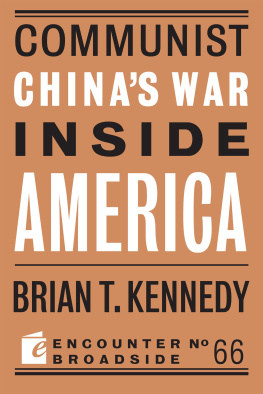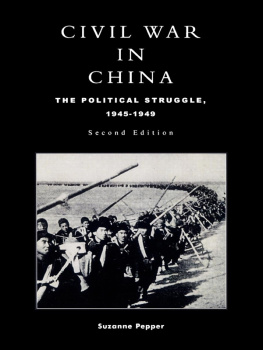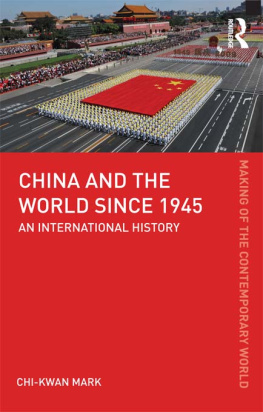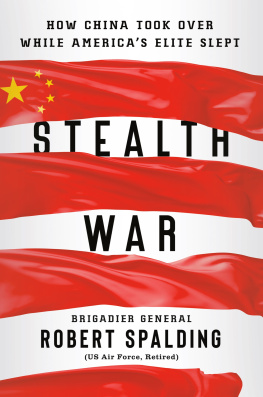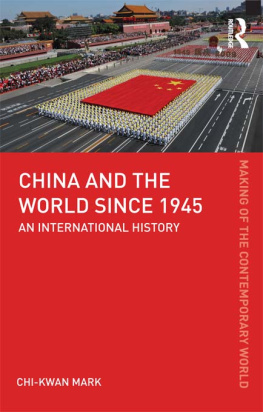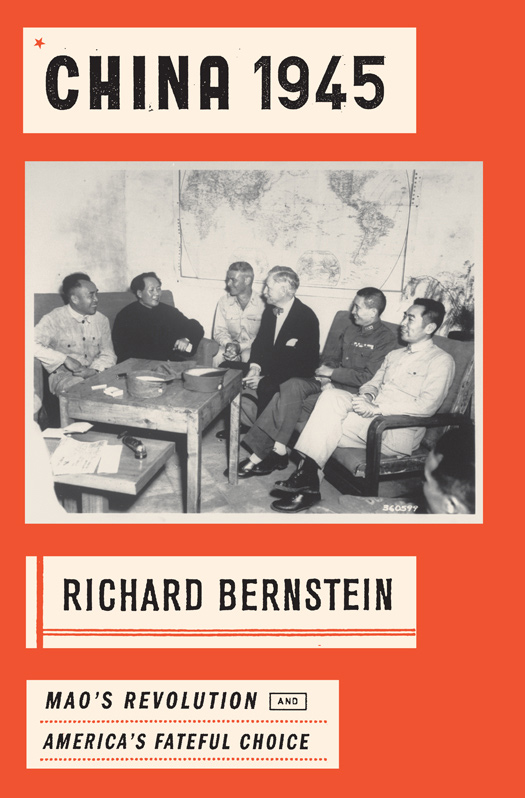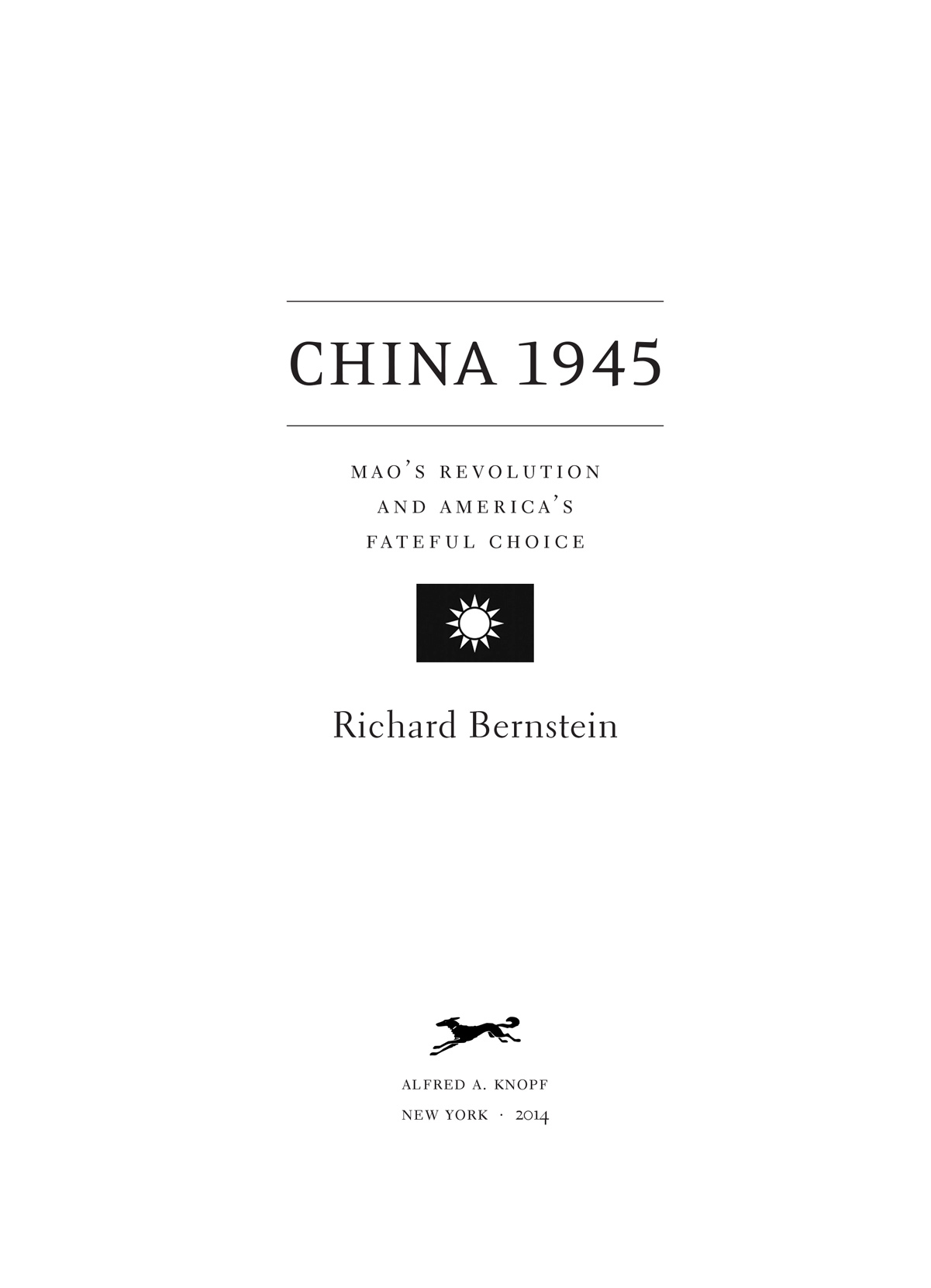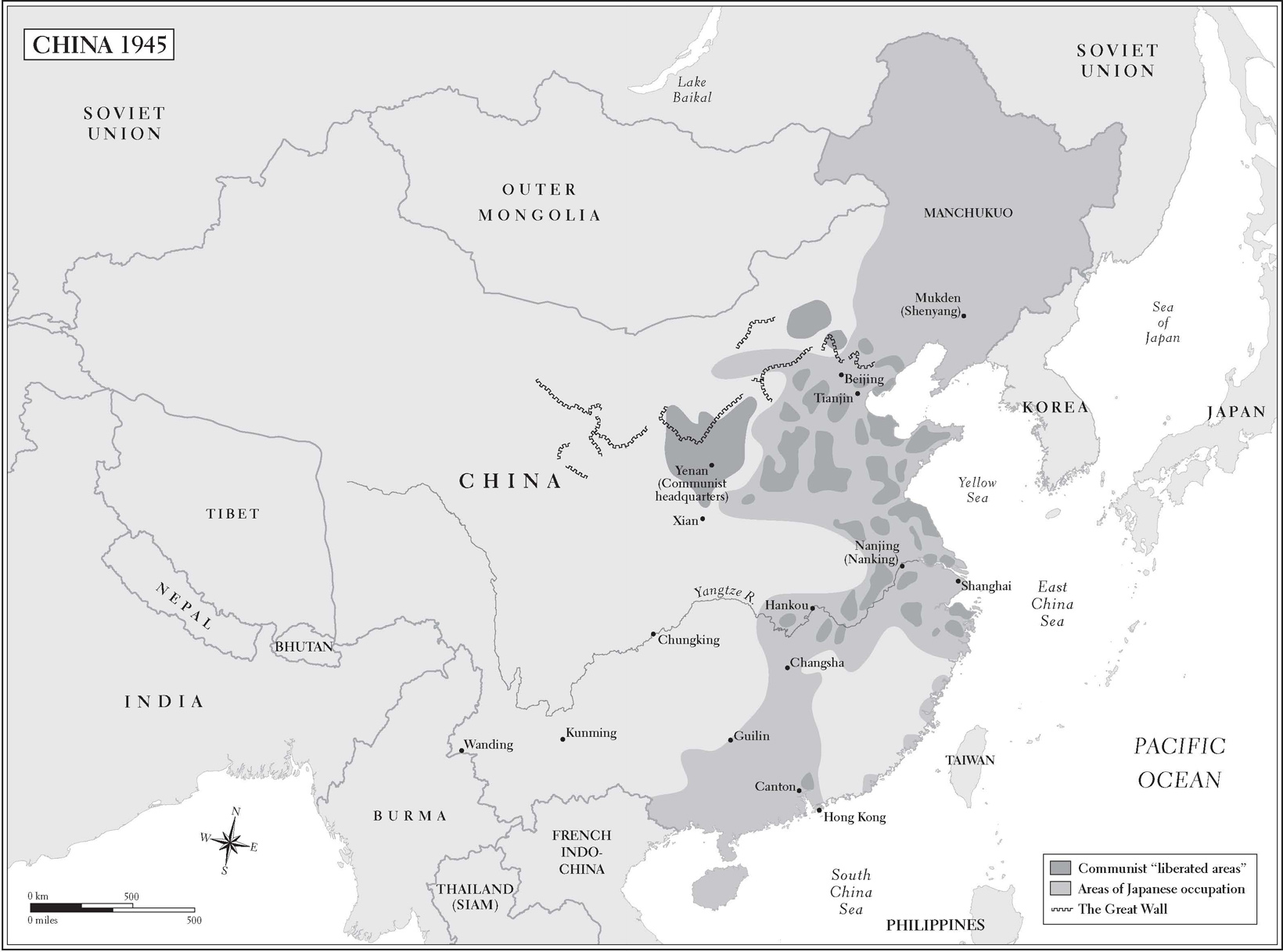Richard Bernstein - China 1945: Maos Revolution and Americas Fateful Choice
Here you can read online Richard Bernstein - China 1945: Maos Revolution and Americas Fateful Choice full text of the book (entire story) in english for free. Download pdf and epub, get meaning, cover and reviews about this ebook. year: 2014, publisher: Knopf, genre: Politics. Description of the work, (preface) as well as reviews are available. Best literature library LitArk.com created for fans of good reading and offers a wide selection of genres:
Romance novel
Science fiction
Adventure
Detective
Science
History
Home and family
Prose
Art
Politics
Computer
Non-fiction
Religion
Business
Children
Humor
Choose a favorite category and find really read worthwhile books. Enjoy immersion in the world of imagination, feel the emotions of the characters or learn something new for yourself, make an fascinating discovery.

- Book:China 1945: Maos Revolution and Americas Fateful Choice
- Author:
- Publisher:Knopf
- Genre:
- Year:2014
- Rating:5 / 5
- Favourites:Add to favourites
- Your mark:
China 1945: Maos Revolution and Americas Fateful Choice: summary, description and annotation
We offer to read an annotation, description, summary or preface (depends on what the author of the book "China 1945: Maos Revolution and Americas Fateful Choice" wrote himself). If you haven't found the necessary information about the book — write in the comments, we will try to find it.
As 1945 opened, America was on surprisingly congenial terms with Chinas Communist rebelstheir soldiers treated their American counterparts as heroes, rescuing airmen shot down over enemy territory. Chinese leaders talked of a future in which American money and technology would help lift China out of poverty. Mao Zedong himself held friendly meetings with U.S. emissaries, vowing to them his intention of establishing an American-style democracy in China.
By years end, however, cordiality had been replaced by chilly hostility and distrust. Chinese Communist soldiers were setting ambushes for American marines in north China; Communist newspapers were portraying the United States as an implacable imperialist enemy; civil war in China was erupting. The pattern was set for a quarter century of almost total Sino-American mistrust, with the devastating wars in Korea and Vietnam among the consequences.
Richard Bernstein here tells the incredible story of that years sea change, brilliantly analyzing its many components, from ferocious infighting among U.S. diplomats, military leaders, and opinion makers to the complex relations between Mao and his patron, Stalin.
On the American side, we meet experienced China hands John Paton Davies and John Stewart Service, whose efforts at negotiation made them prey to accusations of Communist sympathy; FDRs special ambassador Patrick J. Hurley, a decorated general and self-proclaimed cowboy; and Time journalist, Henry Luce, whose editorials helped turn the tide of American public opinion. On the Chinese side, Bernstein reveals the ascendant Mao and his intractable counterpart, Nationalist leader Chiang Kai-shek; and the indispensable Zhou Enlai.
A tour de force of narrative history, China 1945 examines the first episode in which American power and good intentions came face-to-face with a powerful Asian revolutionary movement, and challenges familiar assumptions about the origins of modern Sino-American relations.
Richard Bernstein: author's other books
Who wrote China 1945: Maos Revolution and Americas Fateful Choice? Find out the surname, the name of the author of the book and a list of all author's works by series.

